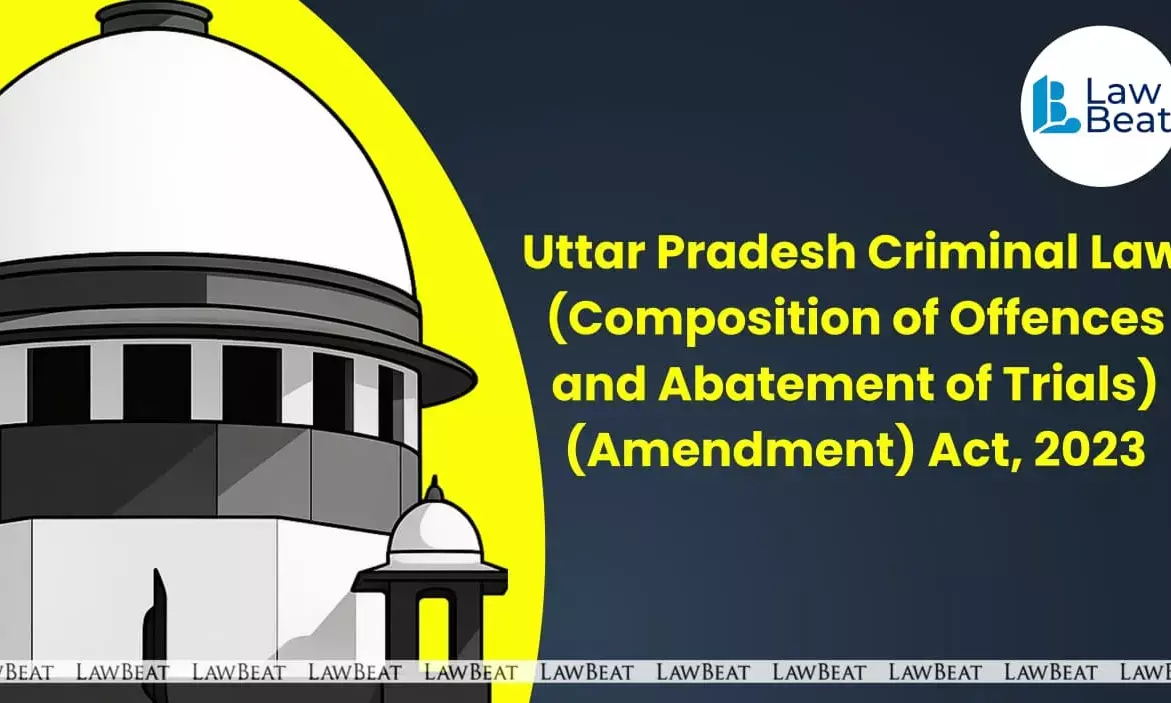‘Drunk Drivers Can’t Go Scot-Free’: Supreme Court Flags ‘Drastic’ Impact of UP Law Abating MV Act Trials

Supreme Court had questioned UP's decision to drop non-compoundable Motor Vehicles Act cases, including drunken driving, impacting deterrence
The Supreme Court has expressed serious concern over the Uttar Pradesh Criminal Law (Composition of Offences and Abatement of Trials) (Amendment) Act, 2023, which allows trials for offences under the Motor Vehicles Act, including non-compoundable ones, pending as of December 31, 2021, to be abated. The court said the impact of such a provision is going to be “drastic".
The bench of Justices J B Pardiwala and K V Vishwanathan observed that abating all proceedings “in one shot” would remove the deterrent effect of these offences.
"In a country like India, traffic is a big problem. Regulation of traffic is a big challenge in major cities including towns. Citizens are not so disciplined insofar as abiding by the traffic rules and regulations is concerned. In such circumstances, there has to be some deterrence so that a check remains on people indulging in offences relating to the Motor Vehicles Act, more particularly the youngsters,” the court said.
Calling the consequences “extremely grave,” the bench noted the rise of highly powerful cars and the increasing number of accidents caused when drivers lose control.
Court highlighted that the amendment has resulted in all criminal proceedings before magistrates for Motor Vehicles Act offences being automatically terminated. What troubled the bench was that this includes non-compoundable offences such as drunken driving, driving under the influence of drugs, jumping red lights and violating stop signs.
The judges emphasised that they were particularly worried about the loss of deterrence due to the amendment. They noted that even offences that appear minor on the surface can be serious, for instance, Section 185 of the MV Act, which makes drunk driving a non-compoundable offence.
"If it is a non-compoundable offence, we wonder how could the State bring around an amendment and in one go tell the court concerned that the proceedings have stood abated. This means that the person who was booked for the offence of driving in a drunken condition or under intoxication goes scot-free. It is possible that such case may be pending past 5 years, however, should that by itself justify abatement of the proceedings?'' the bench asked.
The state counsel argued that if, for example, a drunk truck driver knocks down a scooterist or pedestrian, the driver would also face IPC charges such as Section 279 or Section 304A, which would not be affected by the amendment. But the bench rejected this reasoning.
"The illustration is hardly a justification to support such Amendment Act. It would be too much to say that Section 185 proceedings would be dropped and the concerned person would be prosecuted for Section 279 or Section 304A of the IPC, as the case may be,'' the bench said.
The bench further said it is debatable whether dropping Motor Vehicles Act offences would legally impact the prosecution of related IPC offences.
Section 185, court noted, is only one example. “There are so many other offences we have taken notice of which have stood abated by virtue of the Amendment Act,” it added.
Court has asked the Secretaries of the Legal Department and Transport Department of Uttar Pradesh to file affidavits explaining and justifying the section-wise abatement of proceedings.
“If we may not sound very harsh, this Amendment Act should not be in the form of a step to eradicate arrears of pending cases in different courts of the State of U.P.,” the bench remarked.
The state government has been given six weeks to file the affidavits in response to a plea challenging the amendment as ultra vires for being repugnant to the Motor Vehicles Act, 1988.
Case Title: S Rajaseekaran Vs Union of India & Ors
Order Date: November 20, 2025
Bench: Justices J B Pardiwala and K V Vishwanathan
